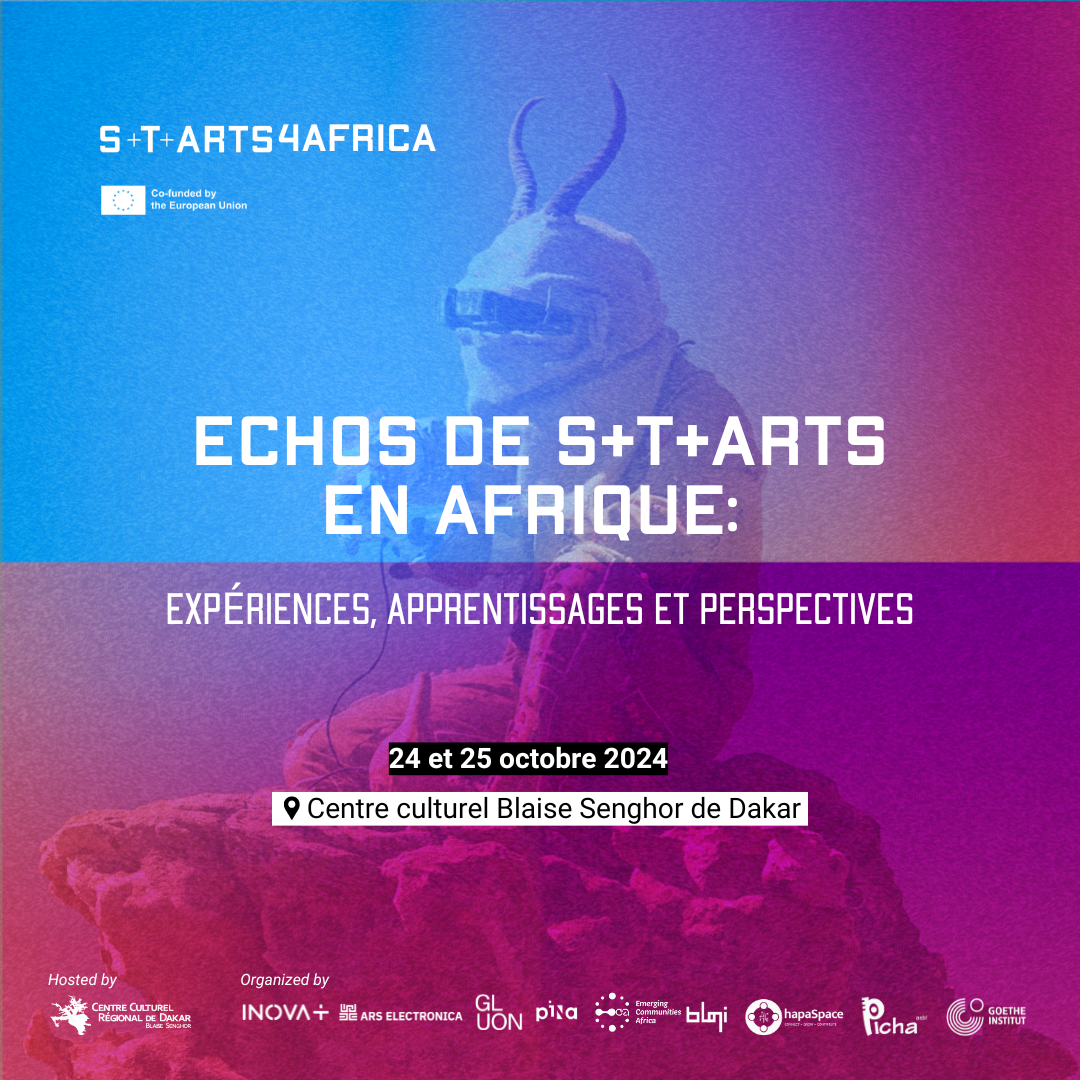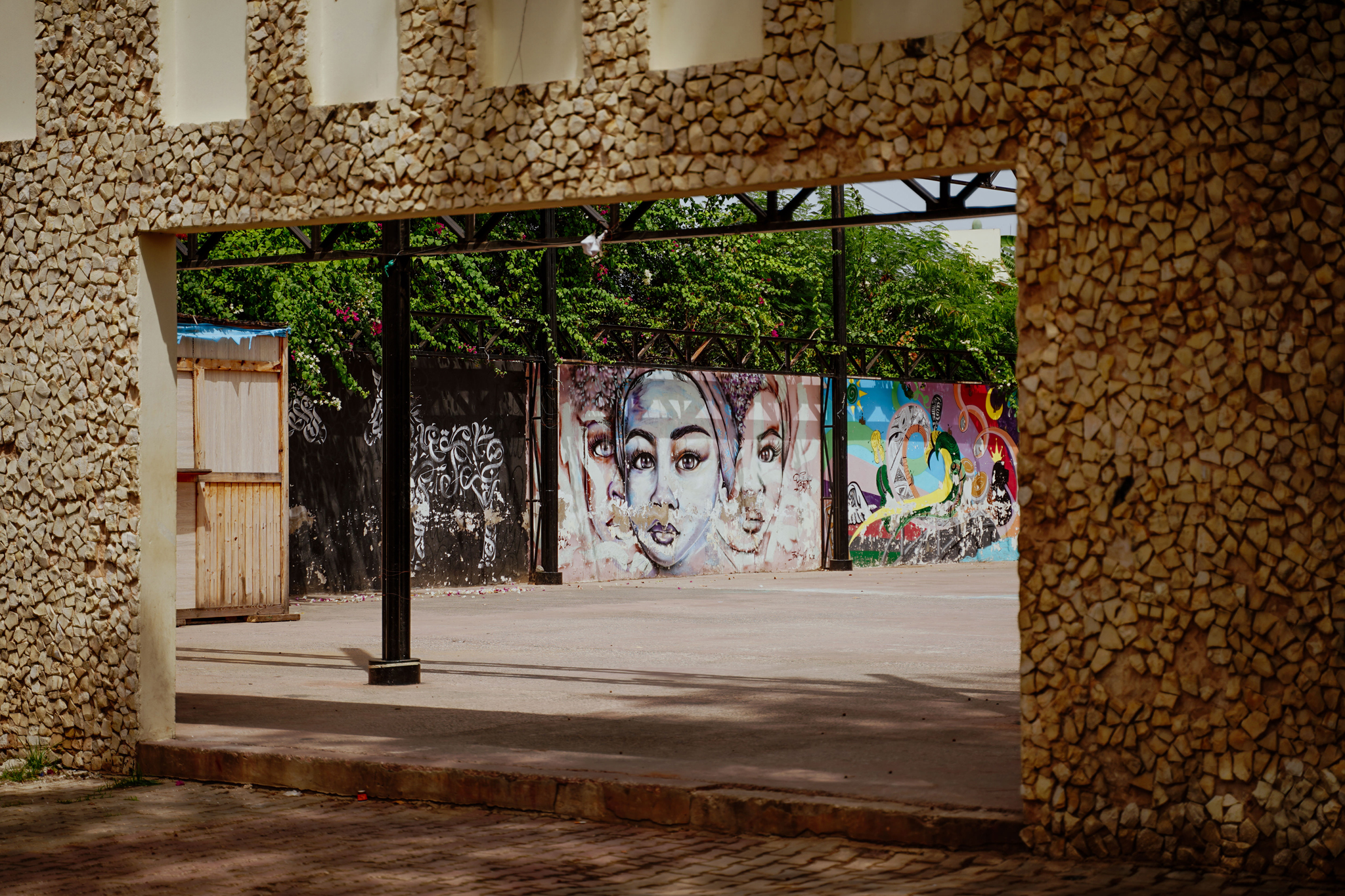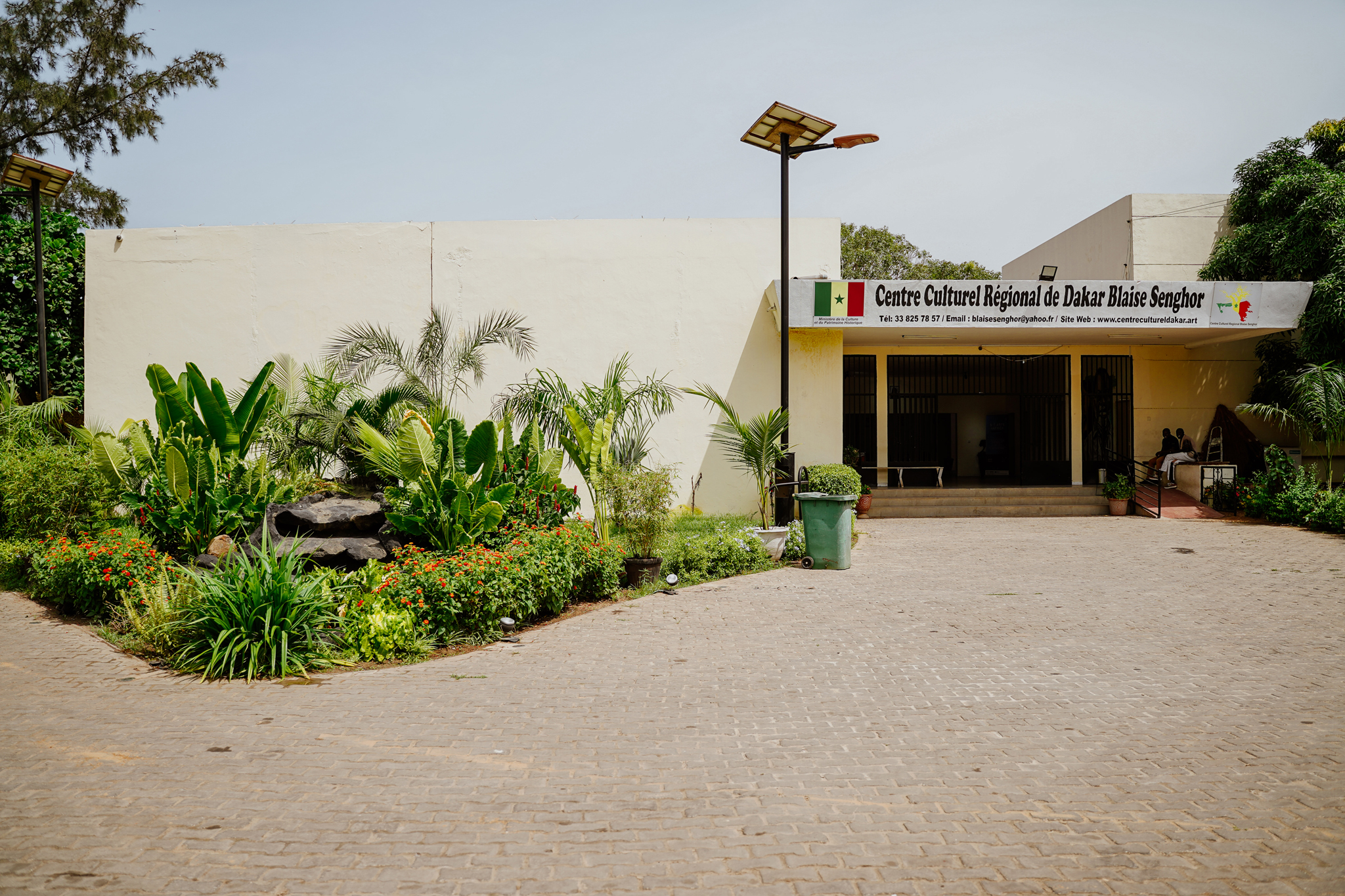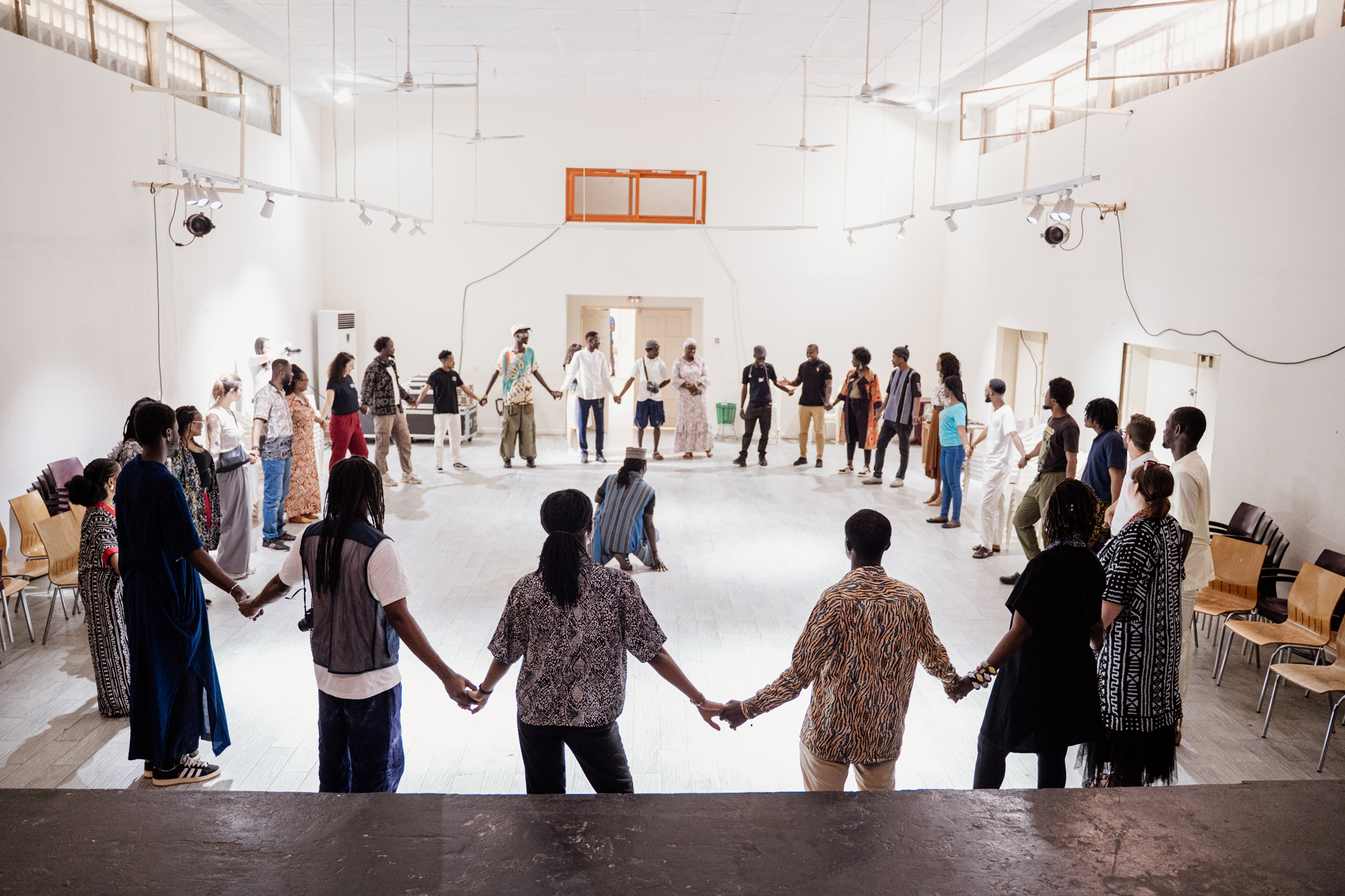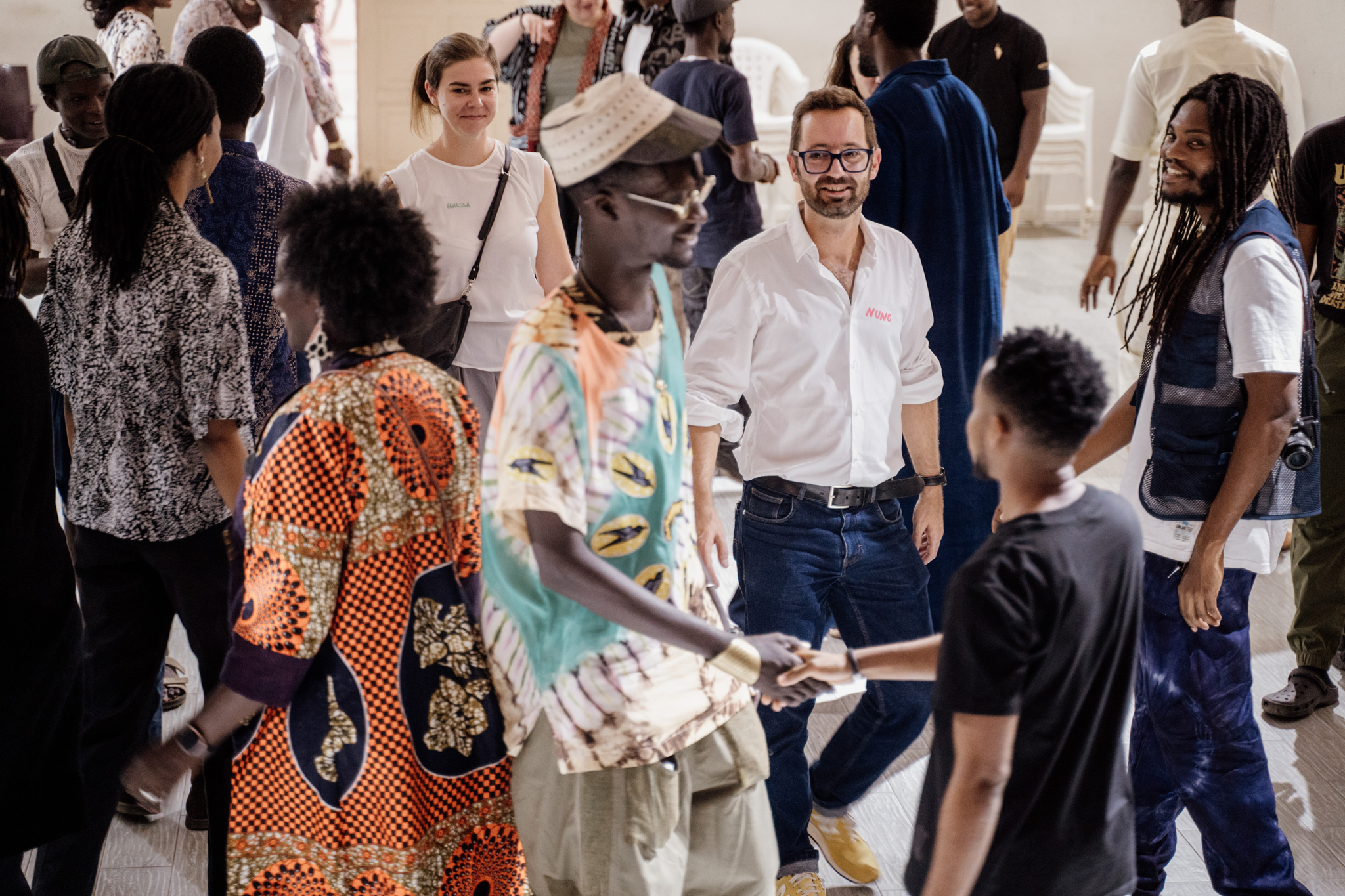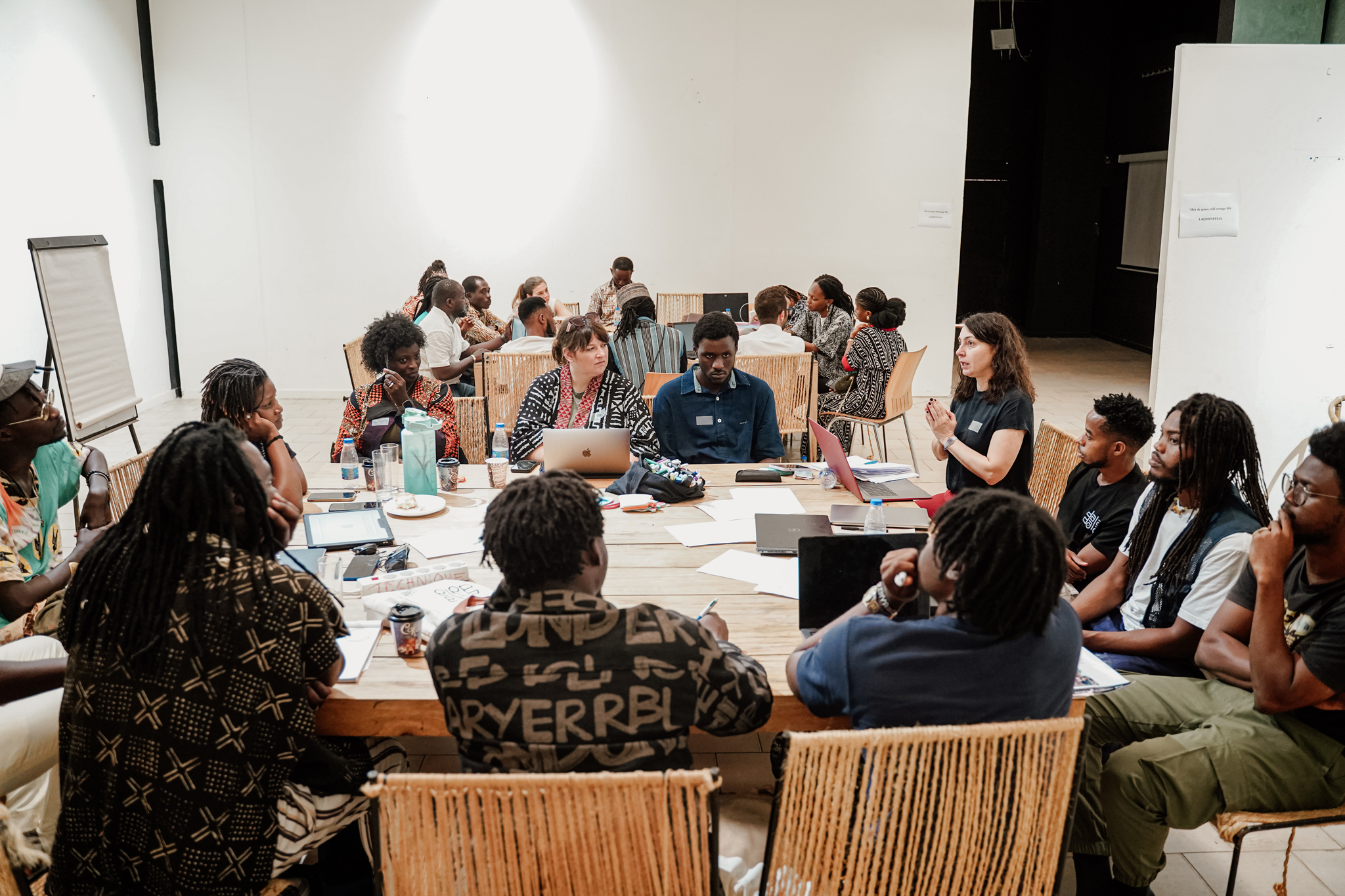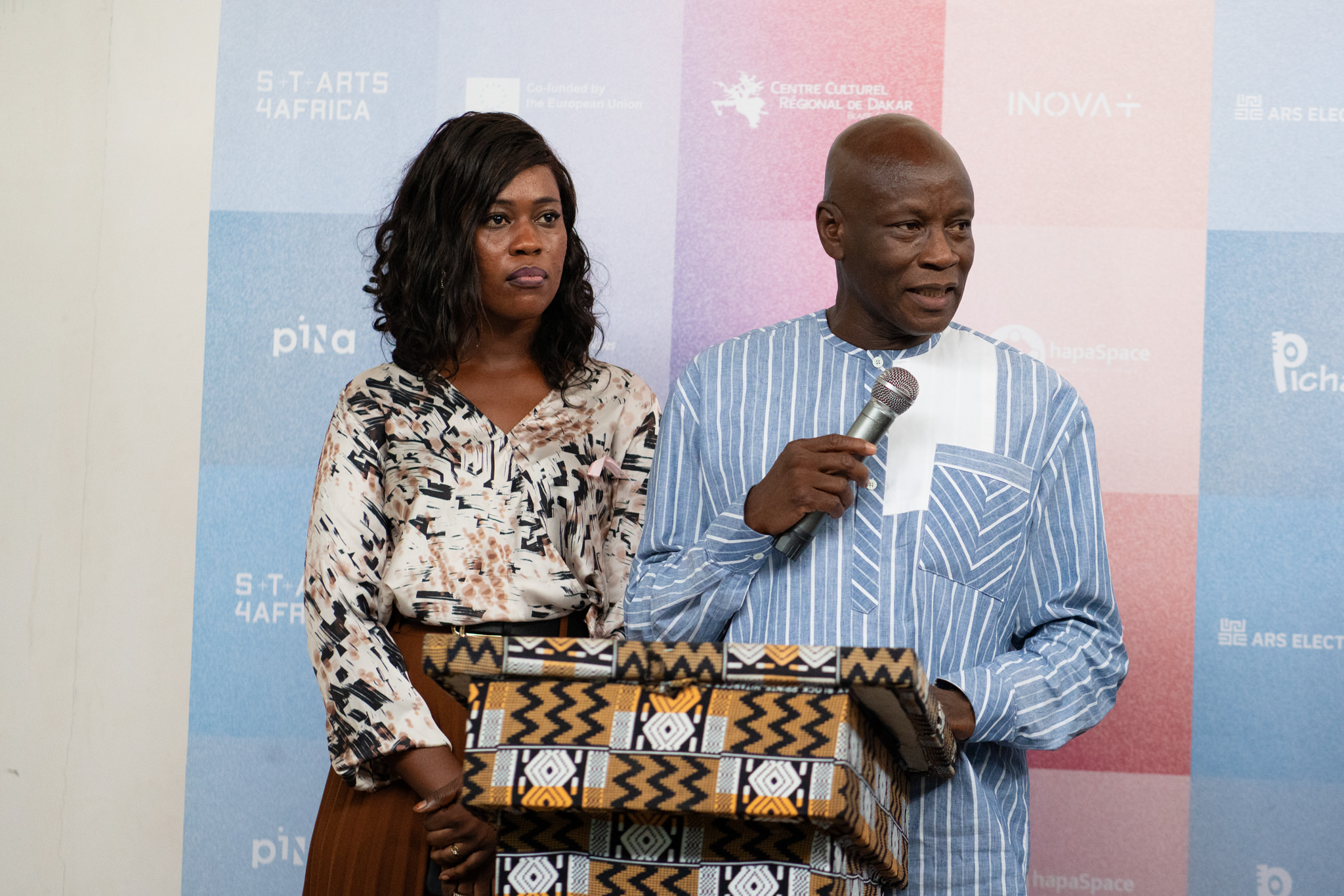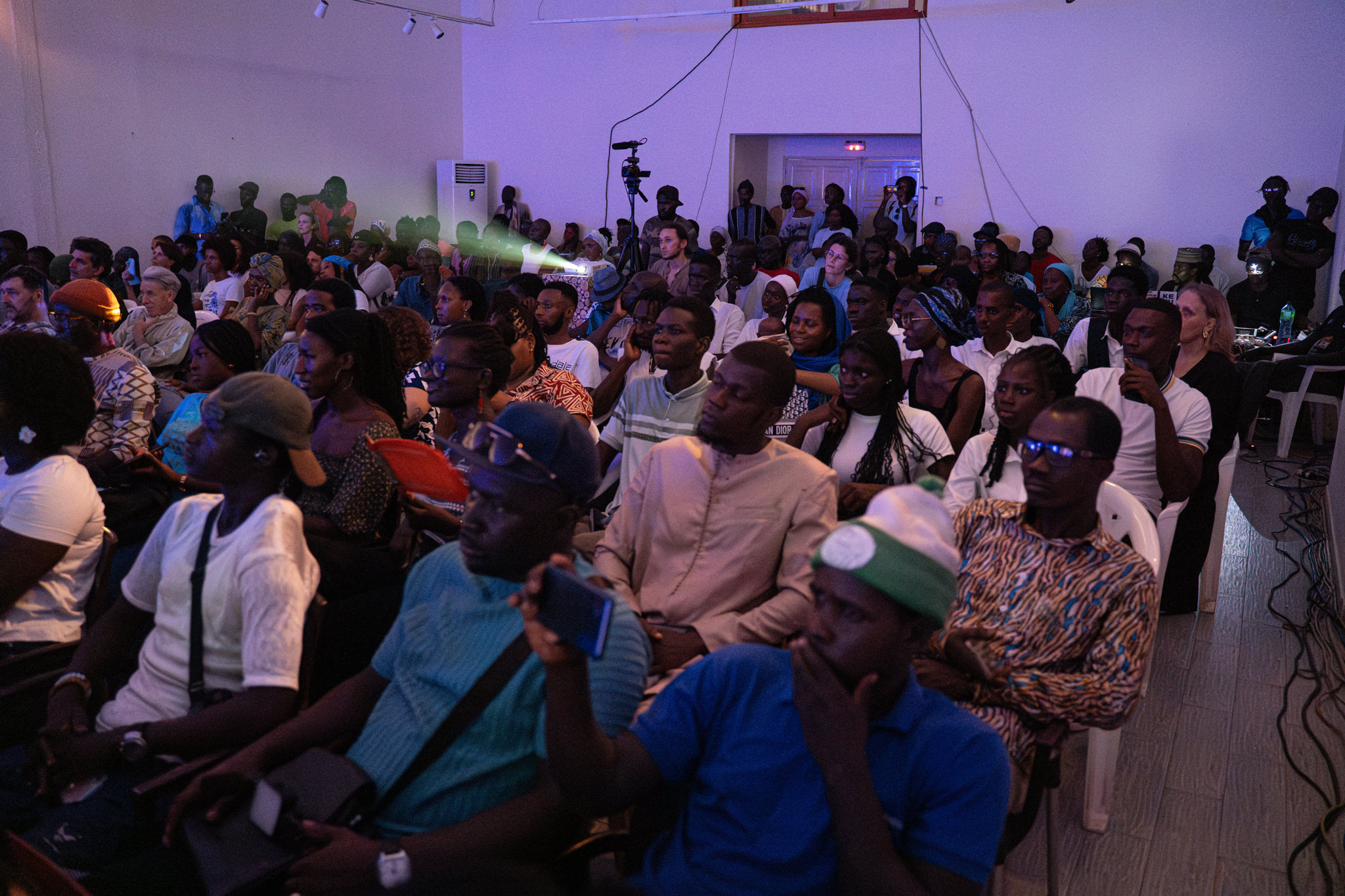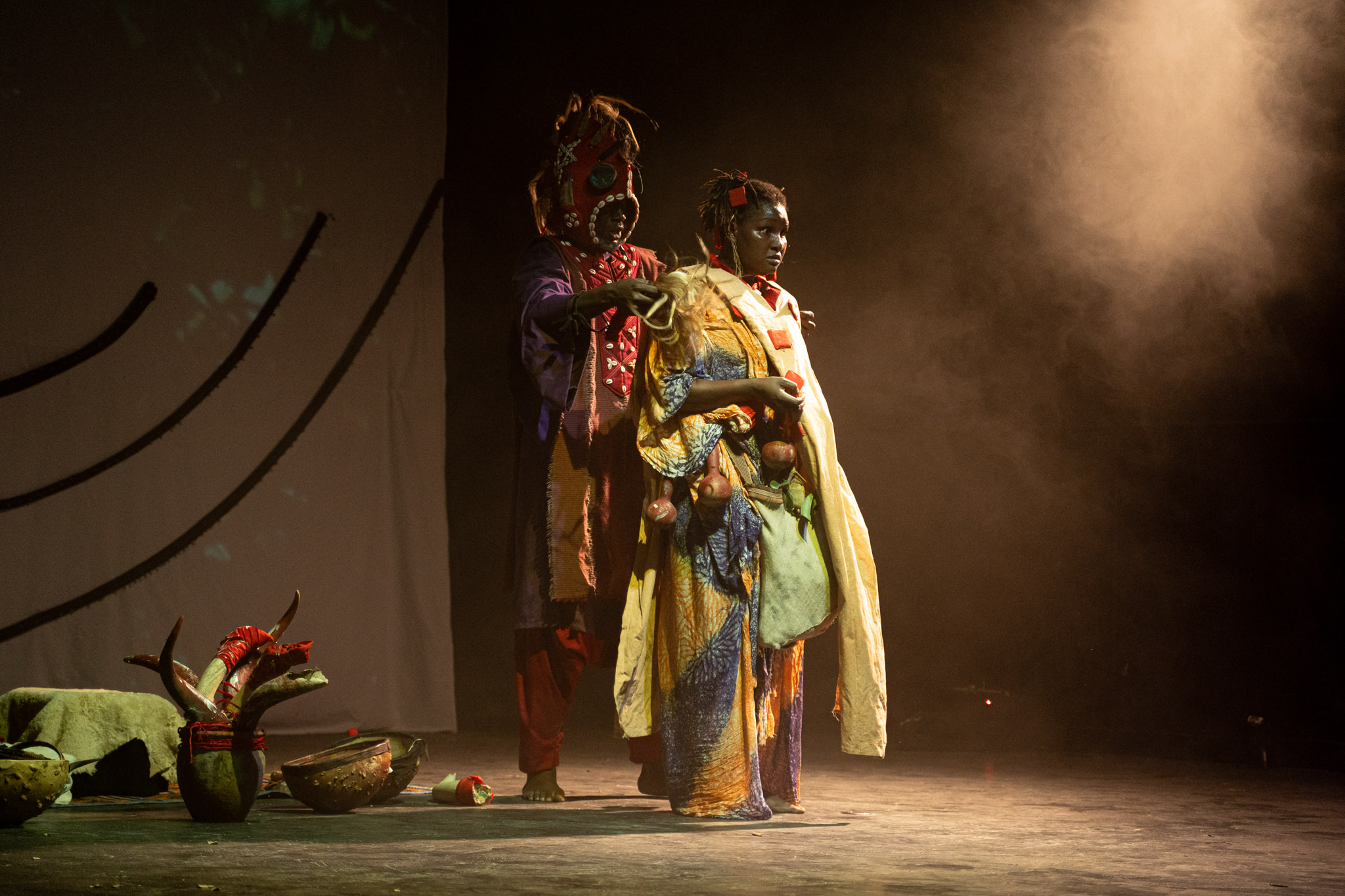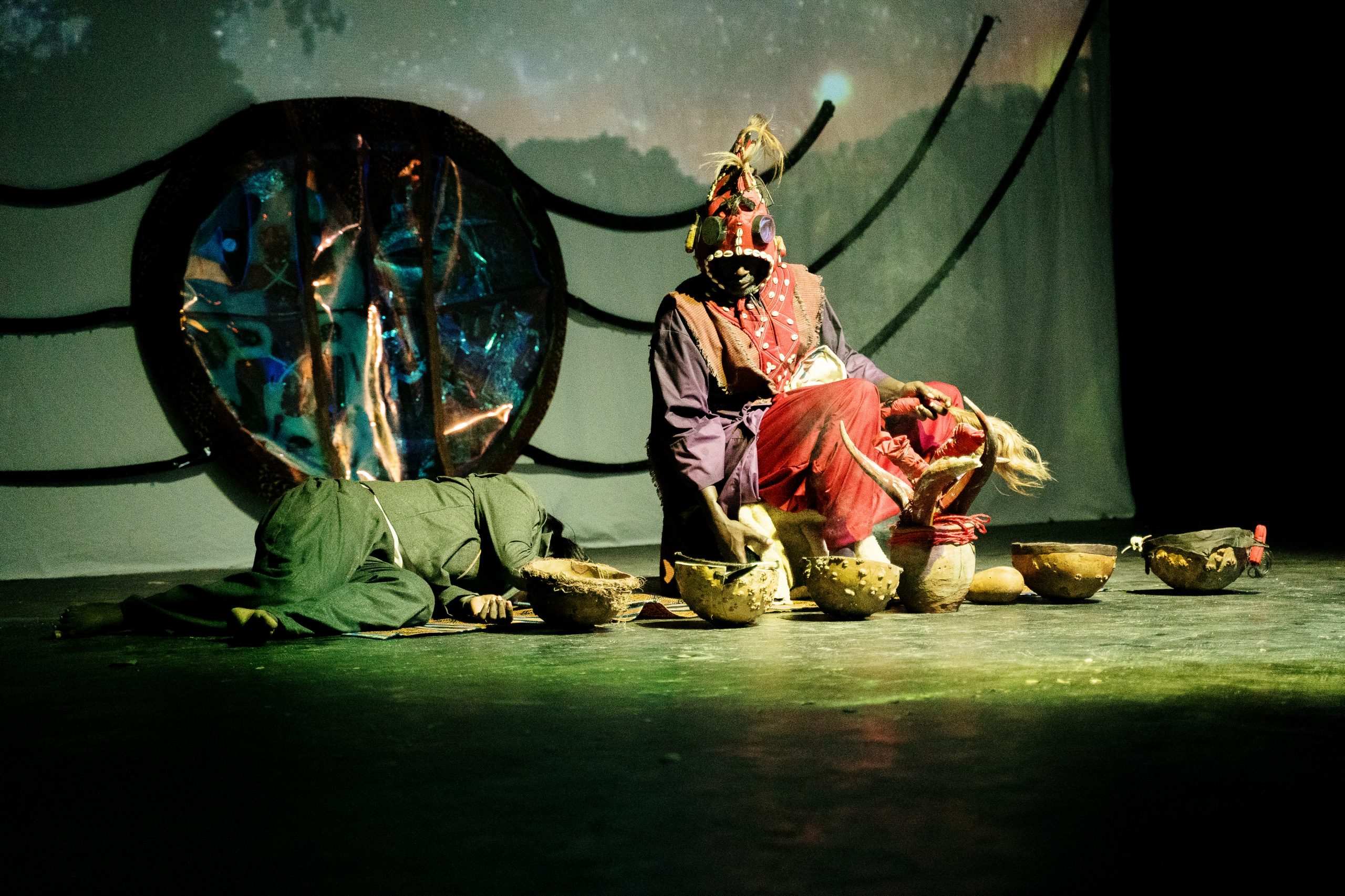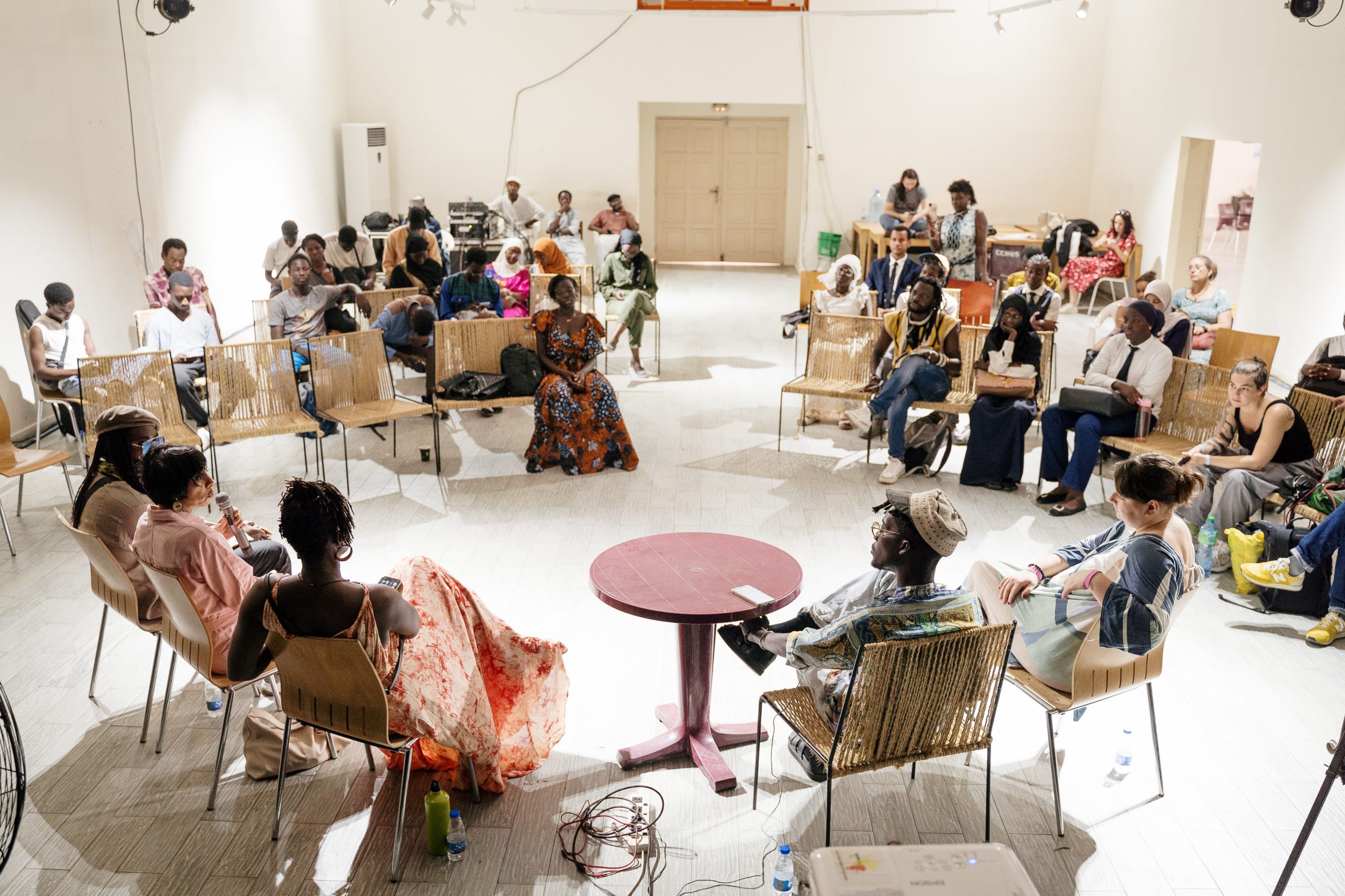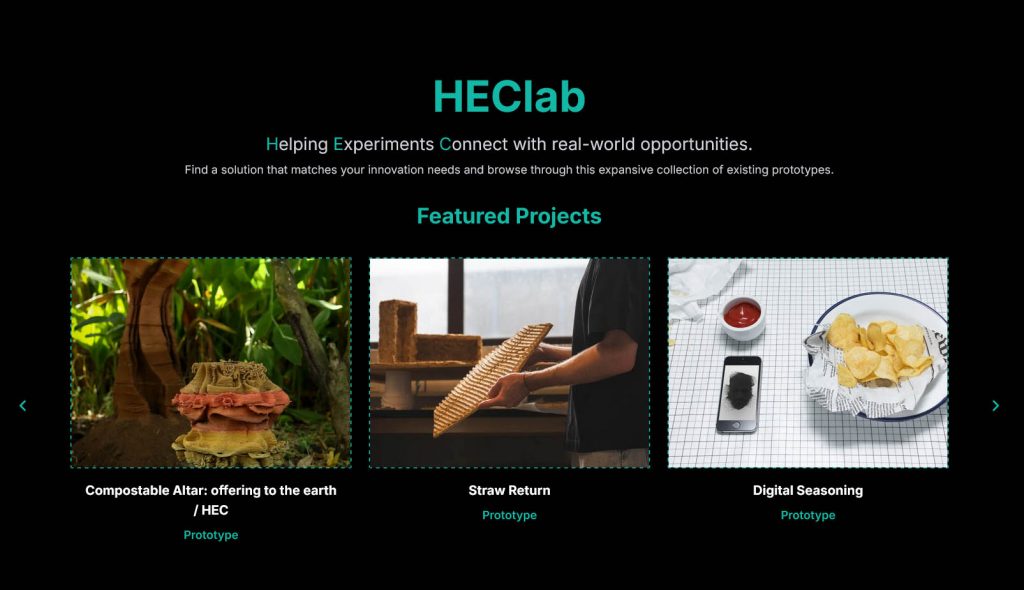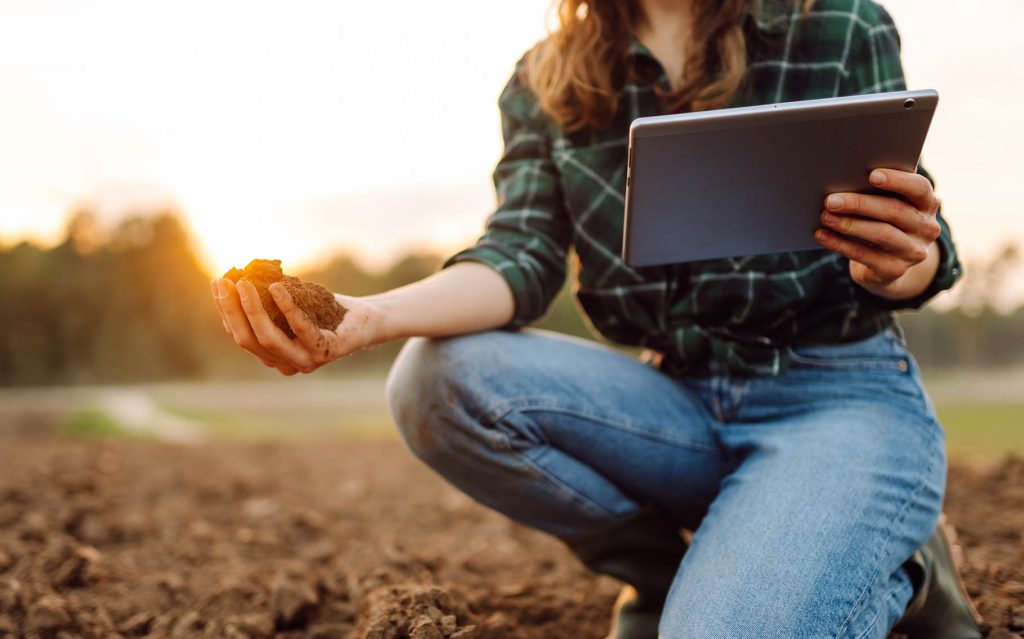Celebrating ancestral knowledge through technology: takeaways from the event of STARTS4Africa in Dakar
S+T+ARTS was in Dakar for the first time on October 24th and 25th 2024, to celebrate the ecosystem of the STARTS4AFRICA project, through its final event “Echoes of S+T+ARTS in Africa: experiences, learnings, and perspectives” organised by GLUON.
Art at the crossroads of ancestral knowledge and technology were highlighted during these two days of exchange and transmission.
The event was designed as a platform to present the achievements of the project, discuss its impacts, and share the ideas and lessons learned from our initiatives over the 18 months of the project.
Through its residencies programme and academies, the project supported African artists in engaging their practice with scientific and technological concepts, using their unique perspectives to address the social, environmental, and cultural issues of our societies.
Considering these elements, GLUON, with the support of INOVA, Ars Electronica and PINA, designed a two-day programme that mixed exchanges between the partners, residency hosts, associated partners and artists of the project, exhibition of the results of the residencies, talks with the public, and workshops with the Senegalese young public.
Day 1 – Thursday, October 24th, 2024
The day started with an assessment session gathering the project partners, the artists in residency, the hosts in Africa and the associated partners, e.g the closed community of the project. This first talk shed light on how artists found that integrating digital tools allowed them to articulate their narratives in ways that resonated with broader audiences, revealing themes of cultural heritage and collective identity that they had not fully realised in isolation. Conversely, the exploration of their stories provided hosts and technologists with insights into the emotional and cultural nuances that could enhance the functionality and relevance of their innovations.
This reciprocal relationship fostered a unique environment where the merging of ancestral knowledge with cutting-edge technology not only enriched artistic expression but also redefined the applications of technology in a culturally sensitive manner.
The transdisciplinary nature of the residency was a recurring theme, with participants noting its profound influence on their work. Artists spoke of how collaboration with technologists opened new avenues for creativity, leading to innovative projects that blended art and technology in ways they had not previously imagined. This cross-pollination of ideas not only enriched their individual practices but also sparked collective inspiration, fostering a sense of shared purpose among the group.
Hosts, too, contributed valuable perspectives. They reflected on the most significant positive outcomes of the project, emphasising the strengthened networks and collaborative spirit cultivated through the consortium. However, they also acknowledged areas for improvement, particularly in enhancing communication and engagement strategies to ensure all voices were heard throughout the residency.
After a networking Lunch, a debate on “Storytelling and the use of technology“ was facilitated by Vanessa Hannesschläger, Ars Electronica, with Alibeta and Aissata Deme (Kenu Lab, Senegal) and Aurelio Mofuga (artist, Tanzania) and Francis Wairura (Ona Stories, Tanzania).
The speakers emphasised the importance of bridging gaps between different audience groups, recognising that universal narratives can be elusive. In a continent rich with diverse cultures and languages, the challenge lies in crafting stories that honour this multiplicity while remaining accessible. This dialogue prompted the audience to reflect on their own frames of reference and cultural contexts, fostering a deeper understanding of how stories can be tailored to connect with varied groups without losing their essence.
The conversation then shifted to the medium through which stories are conveyed. The panellists argued that every medium – be it digital, textual, or performative – shapes the narrative in unique ways. This insight was particularly relevant for African artists exploring new technological avenues.
Another significant aspect of the discussion was the interplay between research and creation. The panellists noted that the choice of technology often informs the storytelling process long before the final artwork is conceived. For African artists, this means that engaging with specific technologies can lead to unexpected avenues of exploration, expanding their understanding of the stories they wish to tell.
Finally, the theme of collaboration emerged as a vital component of contemporary storytelling. The complexity of modern technology necessitates a pooling of expertise, which can lead to richer artistic outcomes. The artists discussed how collaborative environments, like the residency model, enabled them to discover dimensions of their stories that individual efforts might have overlooked. This notion resonated deeply with the African audience, reflecting the continent’s rich tradition of communal storytelling and collective creativity.
The day went through with the opening of the exhibition and a performance, by the Blaise Senghor Regional Cultural Centre (Fatou Sene), and the Senegalese Ministry of Youth, Sports and Culture (Cabinet Director Elhadji Tanor GNING).
Exhibition
Sands of Time (Walls We Walk Through), by the Ala Praxis Collective (Peace Toba Olatunji, Timilehin Oludare, Noah Okwudini, Josh Egesi, Philip Fagbeyiro, and Jadesola Olaniyan) – Tanzania

Sands of Time (Walls We Walk Through) is a proposed multi-sensory architectural installation that aims to raise awareness about the impact of sand mining and rapid urbanisation that threatens the coastal city of Dar es Salaam. The proposed installation makes use of research material, projection mapping, sound and alternative construction technologies to increase active engagement in the dreaming of our cities’ futures, thus creating a sustainable and ecologically conscious future for our communities.
The Daladala-Verse, by Aurelio Mofuga – Tanzania
The Daladala initiative proposes to utilize immersive storytelling technologies such as Augmented Reality (AR) and Virtual Reality (VR) to capture, preserve, and narrate the cultural significance and economic impact of Tanzania’s iconic ride-share public buses.
While Daladalas have long served as vital modes of transport and social hubs for Tanzanians, their prominence has diminished amidst growing competition from alternative transportation options.
This project documents the history and evolution of Daladalas through comprehensive research, culminating in a detailed report supplemented by various digital media forms. By integrating 3D scans, 360-degree videos, imagery, and audio narration into immersive AR and VR experiences, the initiative aims to make these stories accessible to a wide audience.
Additionally, generative AI technologies are employed to enhance historical artifacts and ensure compatibility with contemporary technological standards. Embracing AR and VR technologies not only offers unparalleled interactive experiences but also ensures the preservation of cultural heritage for future generations. Ultimately, the Daladala initiative endeavors to immortalize the legacy of Daladalas and ensure their enduring impact on Tanzanian society while celebrating the fusion of technology and artistry.

RECALL: Spirit of the Old, by Jibril Baba – Nigeria
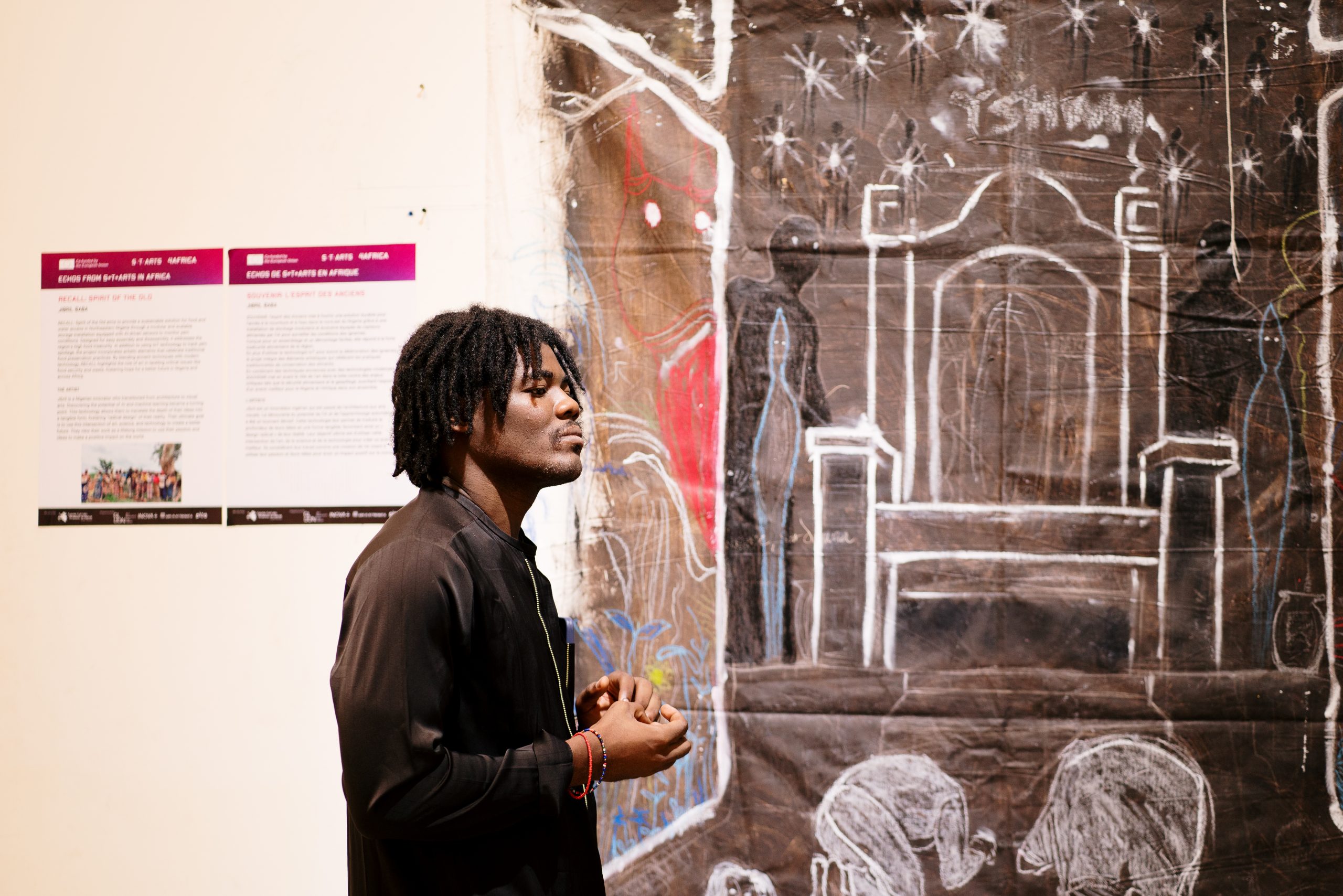
RECALL: Spirit of the Old aims to provide a sustainable solution for food and water access in Northeastern Nigeria through a modular and scalable storage installation equipped with AI-driven sensors to monitor yam conditions. Designed for easy assembly and disassembly, it addresses the region’s high food insecurity. In addition to using IoT technology to track yam spoilage, the project incorporates artistic elements that celebrate traditional food preservation practices. By blending ancient techniques with modern technology, RECALL highlights the role of art in tackling critical issues like food security and waste, fostering hope for a better future in Nigeria and across Africa.
Les Passeurs de l’Invisible (performance from the Collective of Kenu Lab)
The public of Dakar was invited to see the story of a broken pact between Leuk Daour and the Lébou community of Ouakam: an urban developer attempts to build a seawater desalination plant on the sacred dwelling of Leuk Daour, the protective spirit of Ouakam. In doing so, she violates a millennia-old pact established between this spirit and the Lébou community. This act unleashes malevolent spirits, creating chaos in the territory: the ground trembles, homes collapse, torrential rains pour over the landscape, access to the sea becomes impossible, the hot wind turns toxic, rocks become volcanic, and there are numerous losses of human, animal, and plant lives…
The guides of the invisible, initiated into the mysteries of the Lébou, send two twin sisters on an initiatory journey to meet fabulous beings. They are tasked with gathering the elements, renewing the pact with Leuk Daour, and performing the Ndeup to ensure the survival of their community.
Writing: Cedric Mabudu
Actors: El Haji Sega Ba, Aicha Deme Sanka, Cissé Yatera, Naby Moise Sama Tchiaf’n Bangoura
Scenography/costume: Jah Gal Doulsy
Sound creation: Ibaaku
Direction: Alibeta
Production: Makha Bao Fall
*The Lébou form a community in Senegal. Traditionally fishermen but also farmers, they are concentrated in the Cape Verde peninsula (Dakar). They speak Wolof and are predominantly Muslim, but still retain practices derived from animist teachings.
**Ndeup: Lébou therapy trance ceremony.
Day 2 – Friday, October 25th, 2024
After the presentation of S+T+ARTS and STARTS4Africa to the public present on this second day, we had the honour to hear the Keynote “Liberated and shared Heritage” from the Cercle d’Art des Travailleurs de Plantation Congolaise — CATPC, winners of the S+T+ARTS Prize Africa 2024
This speech addressed the lasting impact of colonisation on African communities, particularly marked by the loss of sacred lands, ancestral cultures, and spiritual objects. These objects, taken to Western museums, have been disconnected from their spiritual significance. Among them, the sacred sculpture “Balot,” once looted and now absent from its community of origin, symbolizes this dispossession.
Faced with the impossibility of complete restitution for wasted lives and extracted wealth, CATPC proposes new pathways. By using NFT technology, they have transcended physical and symbolic boundaries, paving the way for a form of immaterial restitution and healing for their community. This technology has allowed the collective to circulate the object within global networks.
CATPC also highlighted the role of new technologies in the reflection process surrounding restitution, while celebrating meaningful encounters with international researchers and the local community. These exchanges have fostered a renewed vision of restitution, not merely as a physical return of objects, but as a symbolic and spiritual circulation, a sharing of ideas and values. This approach offered a reflection on unity and coexistence, necessary to overcome the divisions of the past.
Link to video: https://drive.google.com/file/d/1MIC6P0KGoC3dMmcA06MU6sadasRsgqFN/view?usp=drive_link
For the audience, this message was very empowering, as it emphasises the importance of dialogue and healing. By fostering meaningful exchanges between local communities and international researchers, CATPC promotes a process of mending historical wounds, encouraging unity and shared purpose in addressing past injustices.
The keynote was followed by a Talking circle on “Ancestral knowledge and the digital” , facilitated par Alibeta, Kenu Lab, with Marion Louisgrand Sylla, Kër Thiossane, Mour Fall, Dakarese artist, and Maja Drobne, PINA.
This session questioned how this relationship manifests in artistic residencies and training programmes.
Ancestral knowledge, for a long time marginalised by Western paradigms, holds a collective intelligence and an immaterial heritage rich in meanings. These traditional knowledges, stemming from cosmology, spiritual practices, languages, and local symbolic systems, are now being reevaluated within artistic and educational processes. They allow for a redefinition of the role of technologies in the production of meaning, particularly in the arts.
The theme of decolonisation was central to the discussions, prompting participants to consider how artistic practices can serve as vehicles for reclaiming and revaluating ancestral knowledge. This perspective positions the arts not just as creative expressions but as crucial platforms for knowledge production and critique of prevailing paradigms.
A significant outcome of the discussions was the recognition that ancestral knowledge should influence the design and application of modern technologies. Participants contemplated how technologies, including AI, could be adapted to better reflect and serve local cultural contexts. This integration is seen as a pathway to creating tools that are not only functional but also culturally resonant, ensuring that technology is accessible and relevant to local communities.
The last part of the event was dedicated to knowledge sharing, with 3 workshops:
Workshops
Workshop 1 “Tell stories using Emerging Media” by Aurelio Mofugo, artist, and Francis, Ona Stories (Tanzania)
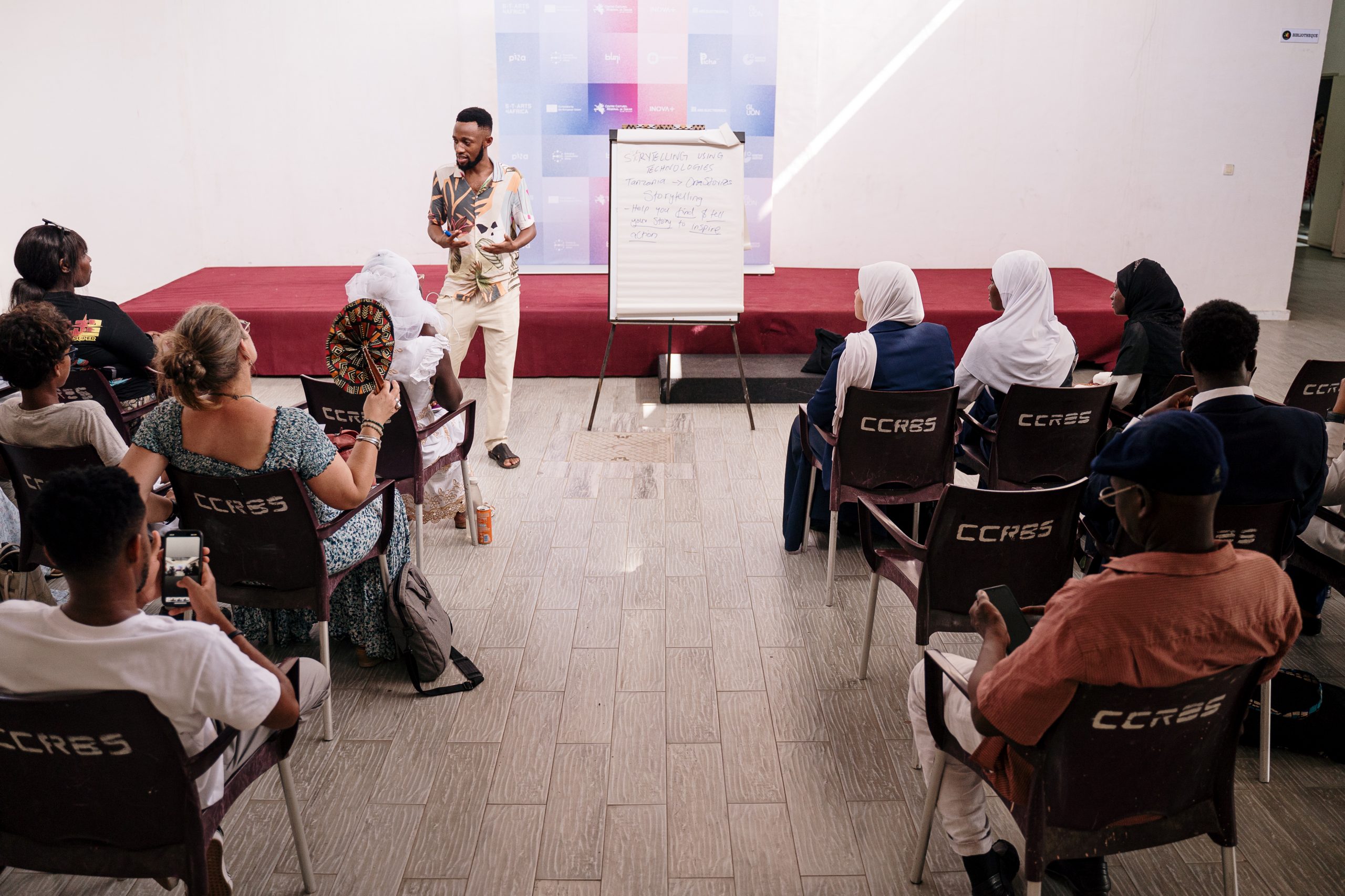
To learn how to digitally transform artifacts and bring them to life through interactive visualisations in physical spaces using augmented reality.
Inspired by the groundbreaking Daladala Verse project, this session offered a unique opportunity to blend history and innovation, showcasing how AR can turn everyday objects into dynamic narratives. Participants learned hands-on techniques to bring their stories to life, creating interactive experiences that engage audiences in new and captivating ways. This workshop empowered participants to use AR to tell stories that transcend time, connecting the past, present, and future.
Workshop 2: “Re-animating local waste materials scavenged from around Dakar” by Tamzyn Botha, SHADE, collaborator on the “Dzata” project, one of the S+T+ARTS Prize Africa 2024 winners
To address and reimagine DIY solutions to everyday problems. To propose new ideas for a shared future, paying homage to past technologies.
Participants extracted the fundamental aspects from their sources. The use of LLMs like ChatGPT were encouraged to accelerate this process. They organised these aspects into modular systems of their own design, using the systems modeling framework from La Boutique de la Cabale. Each participant began a conclave as a judge to start identifying patterns involving the extracted source elements. The goal was to channel the raw creative “energy” from one or more media sources into a completely new creative effort. Participants were able to join the conclaves of others as members who will help judge from the perspective of the elements. Observations and results were added to the provenance of the judging system by the judge, as part of the product’s narrative. After solo or group sessions, participants designed a new system with the instructor, primarily using sources from IAMISIGO and other new sources. Together, they decided on a product to create from raw elements. All participants simultaneously took part in subtitling the states of the system from the ongoing perspectives of the system’s elements. At a minimum, they got a reusable and highly contextual framework that provided ongoing and relevant contributions to any creative process using it.
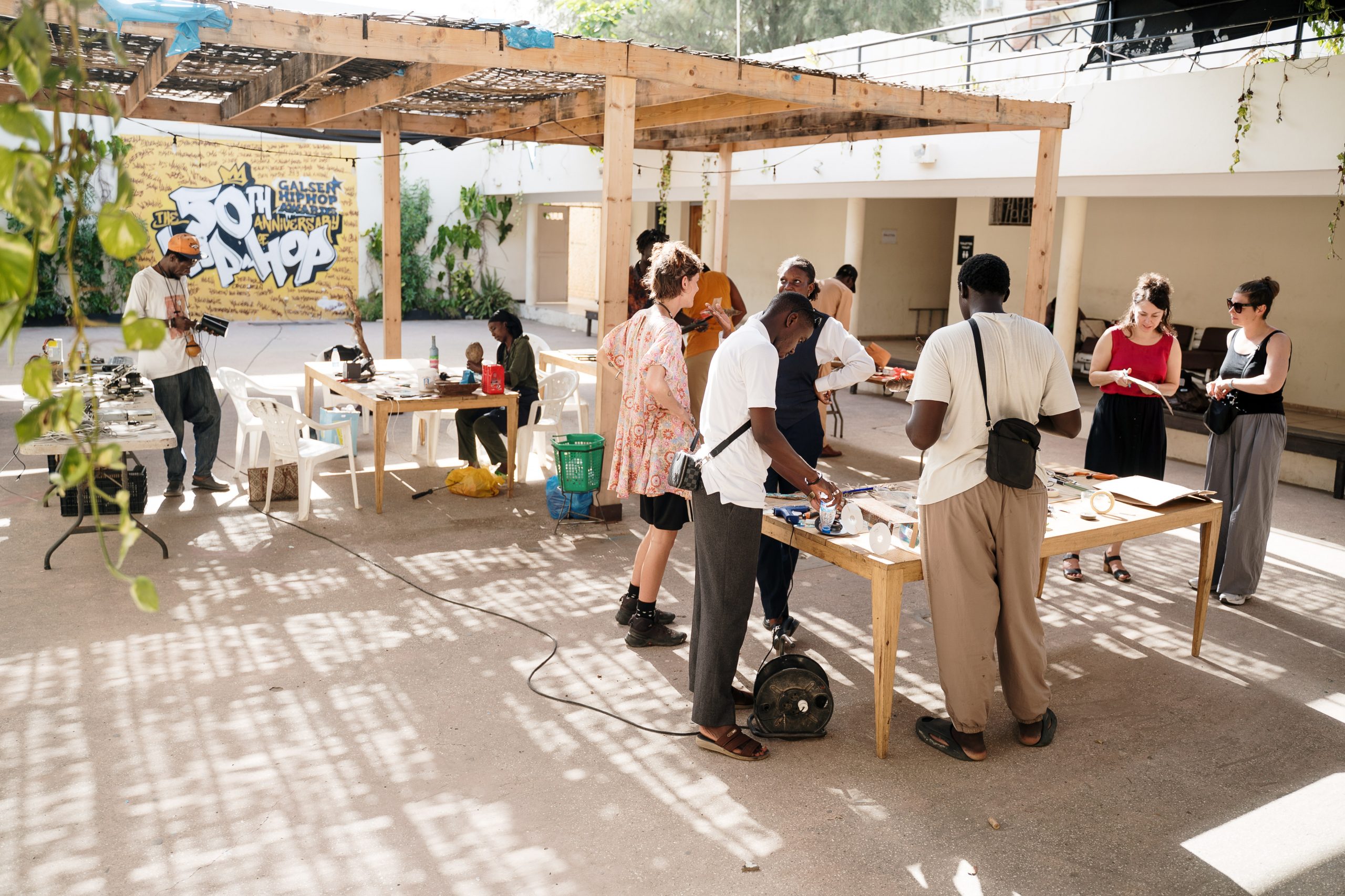
Workshop 3: “Discovering patterns in artistic chaos: Archiving IAMISIGO with the Cabal”, by Kolade Joseph Ayo-Vaughan, one of the the S+T+ARTS Prize Africa 2024 winners
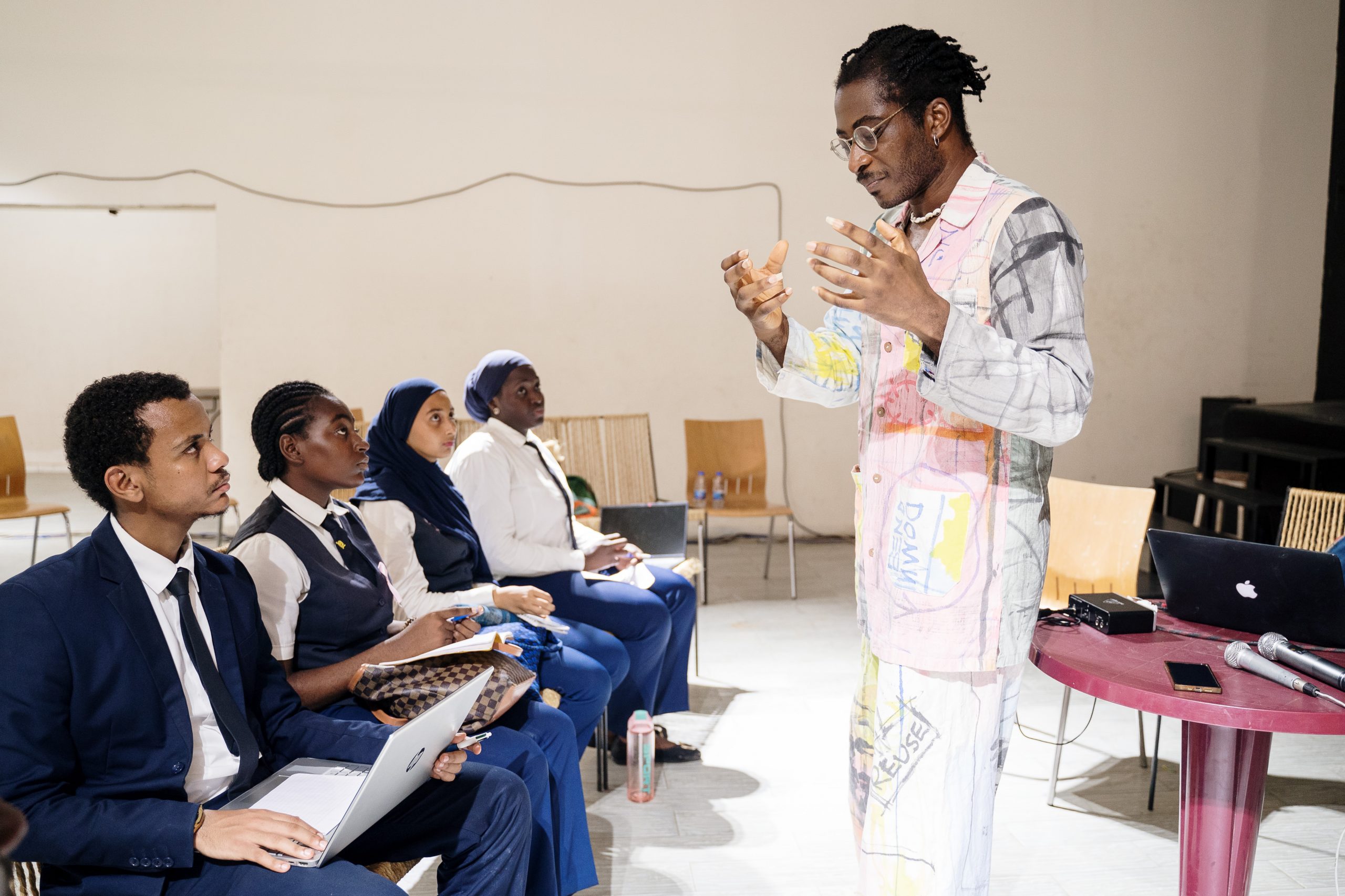
RECALL: Spirit of the Old aims to provide a sustainable solution for food and water access in Northeastern Nigeria through a modular and scalable storage installation equipped with AI-driven sensors to monitor yam conditions. Designed for easy assembly and disassembly, it addresses the region’s high food insecurity. In addition to using IoT technology to track yam spoilage, the project incorporates artistic elements that celebrate traditional food preservation practices. By blending ancient techniques with modern technology, RECALL highlights the role of art in tackling critical issues like food security and waste, fostering hope for a better future in Nigeria and across Africa.
Useful links:
Event in starts.eu: https://starts.eu/article/echos-de-starts-en-afrique-experiences-apprentissages-et-perspectives/
Detailed public programme: https://starts.eu/wp-content/uploads/PROGRAMME-216-x-356-mm.pdf

